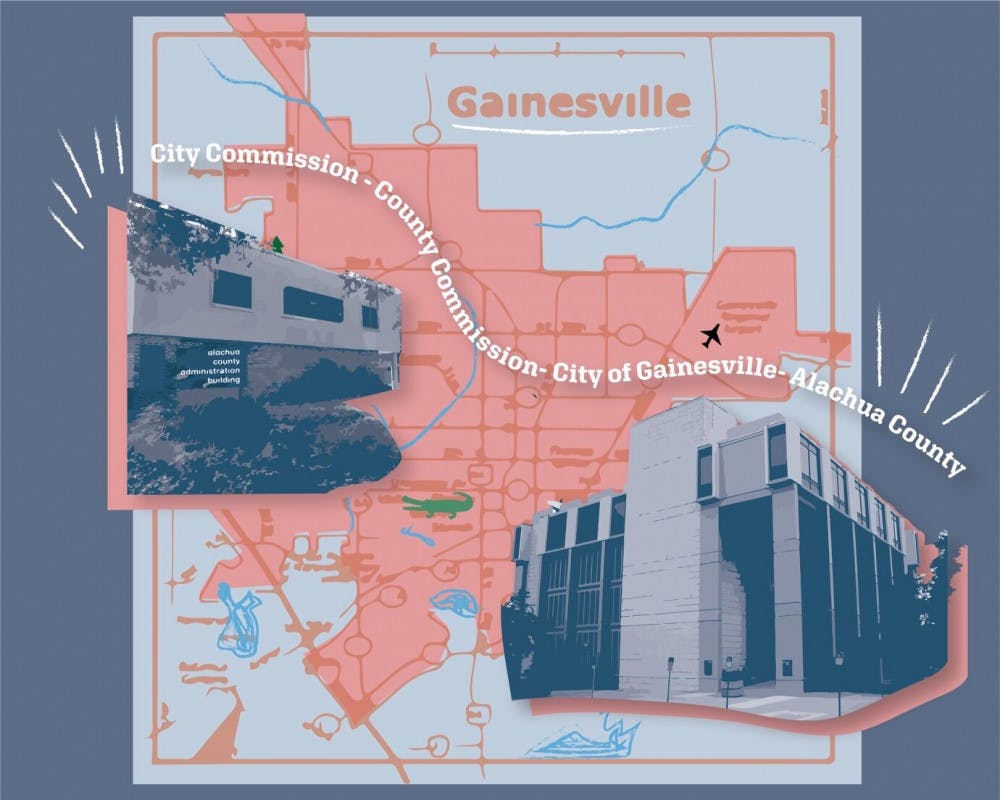The Gainesville City Commission voted 4-3 to restore exclusionary zoning, which nullified the previous controversial ordinance that eliminated single family zoning.
The ordinance passed Thursday night. It will change laws back to the original exclusionary zoning plan, including distinctions between single family zoning and multi-family zoning. It will prevent two-story, multi-family units from being built in single family residential neighborhoods.
Mayor Harvey Ward and commissioners Cynthia Chestnut, Desmon Duncan-Walker and Ed Book voted to pass the ordinance. Commissioners Casey Willits, Reina Saco and Bryan Eastman voted in dissent.
The commission is facing two lawsuits for eliminating exclusionary zoning. Completely reverting back to the original zoning laws would prevent possible litigation against the commission for any additional changes, Ward said.
“What we want is a bulletproof procedure,” he said. “We want it to work.”
Commissioner Cynthia Chestnut introduced the ordinance erasing previous ordinances that eliminated single family zoning. The commission’s action to remove exclusionary zoning in the fall wasn’t in the city’s best interest, she said.
“It was very, very divisive racially and economically,” she said. “Our city needs time to heal.”
Ward and Duncan-Walker both agreed walking back the ordinance was the right choice for the city. The focus should be on making current housing affordable, Duncan-Walker said, and making Gainesville a more equitable place to live.
However, Eastman didn’t want to throw out the past ordinance completely. He said examining parts that could be beneficial to first-time homeowners and couples starting families could be worth it. But he didn’t raise a motion to keep any section of the ordinance eliminating exclusionary zoning.
The majority of public commenters at the meeting supported Chestnut’s motion to remove the ordinance. One Gainesville resident asked the commissioners not to do so during early public comment, before the motion was up for discussion. Thirteen others said they supported restoring exclusionary zoning, including 46-year-old Monica Frazier.
“What I would like to see from this new City Commission is [for it to] actually listen, hear and act based on what you hear in the community,” Frazier said. “And not just what you think is best.”
Several residents noted the commissioners had heard majority opposition to eliminating exclusionary zoning during the meeting, which was why they needed to restore it now.
Saco noted there were 24 people who wrote to the commission via public comment before the Thursday meeting and asked them not to walk back the ordinance. Most of them were students, she said.
“Those 24 voices obviously can’t afford to spend hours here,” she said. “They have jobs, they’re younger, they’re disadvantaged.”
Willits also expressed concern for the constituents in his district, the majority of them renters.
Residential zoning laws were created to perpetuate economic discrimination, he said, publicly supporting eliminating exclusionary zoning for the first time. Separation of renters in multi-family housing from homeowners in single family housing prevents the working class from being able to gain wealth in desirable areas of town.
The commission also voted 6-1 to approve a recruitment plan for permanent city charter officers, which includes city manager, general manager of utility, city auditor, city attorney and equity and inclusion director. The five current charter officers have served as interim positions since the previous city manager Lee Feldman resigned Sept. 13, 2021. His resignation came after accusations of gender discrimination in 2020.
The city’s Human Resources department designed the recruitment plan that will use two search firms, GovHR and Baker Tilly, to aid the search process for the five charter officers. Each individual search will take 15 weeks.
The city manager will be the first position filled in May, according to the plan. Though the motion to accept the plan passed, Ward expressed concerns about the hiring process timing. The city manager is in charge of the city budget’s preparation for commissioner approval, Ward said, and the new hire would take over in the middle of the process.
“Changing horses in the last third of the budget season could be problematic,” he said.
Contact Siena at sduncan@alligator.org. Follow Siena on Twitter @SienaDuncan.

Siena Duncan is the Fall 2024 Editor-in-Chief of the Alligator. She's interned for the Salt Lake Tribune, the Tampa Bay Times and POLITICO. In her spare time, she loves to take walks to see the cows by her apartment and add more to her sketchbook.






